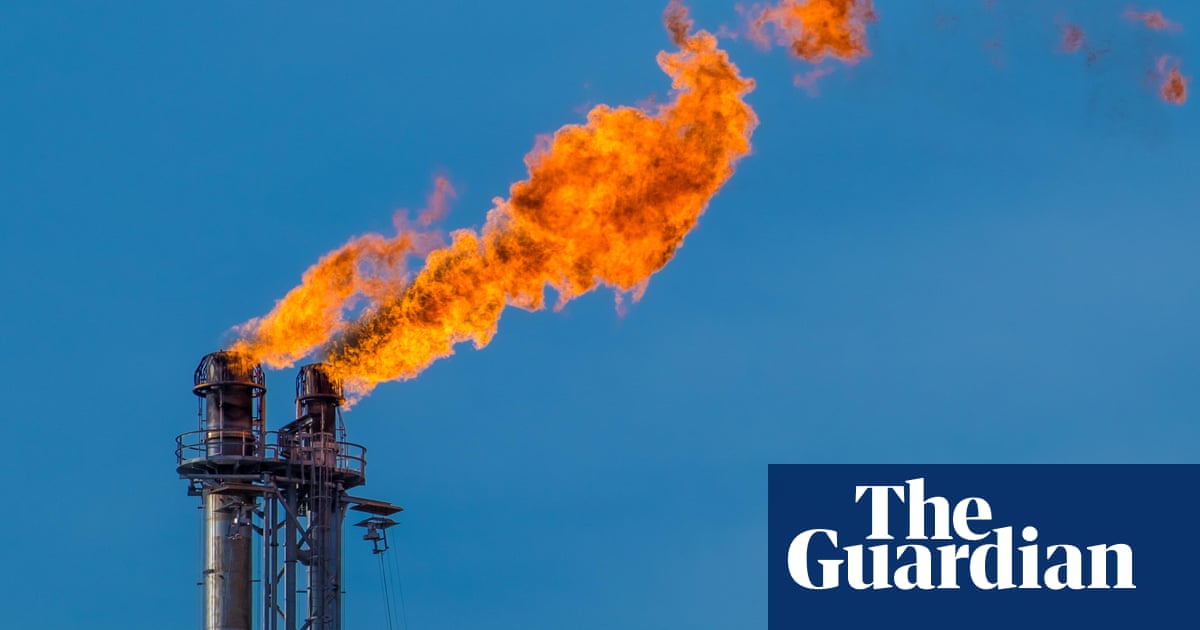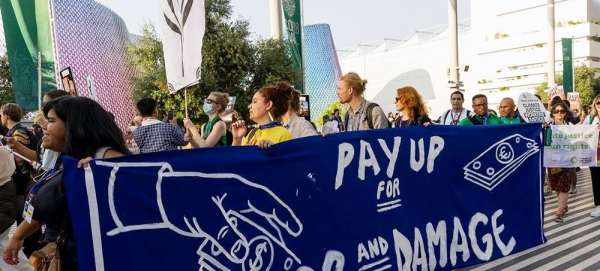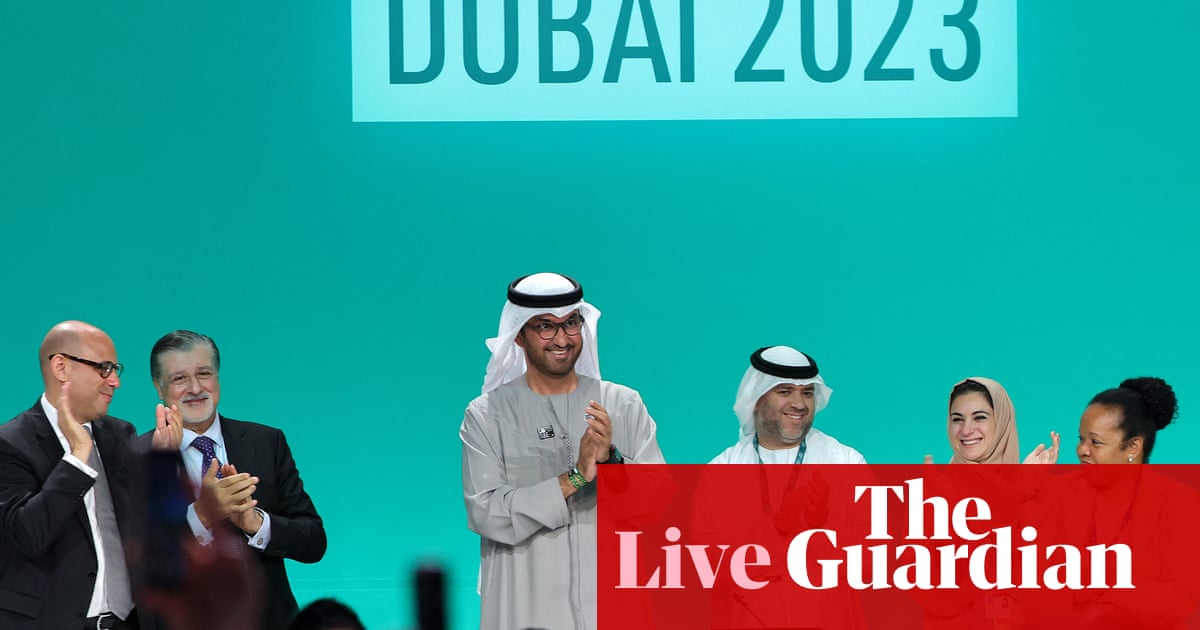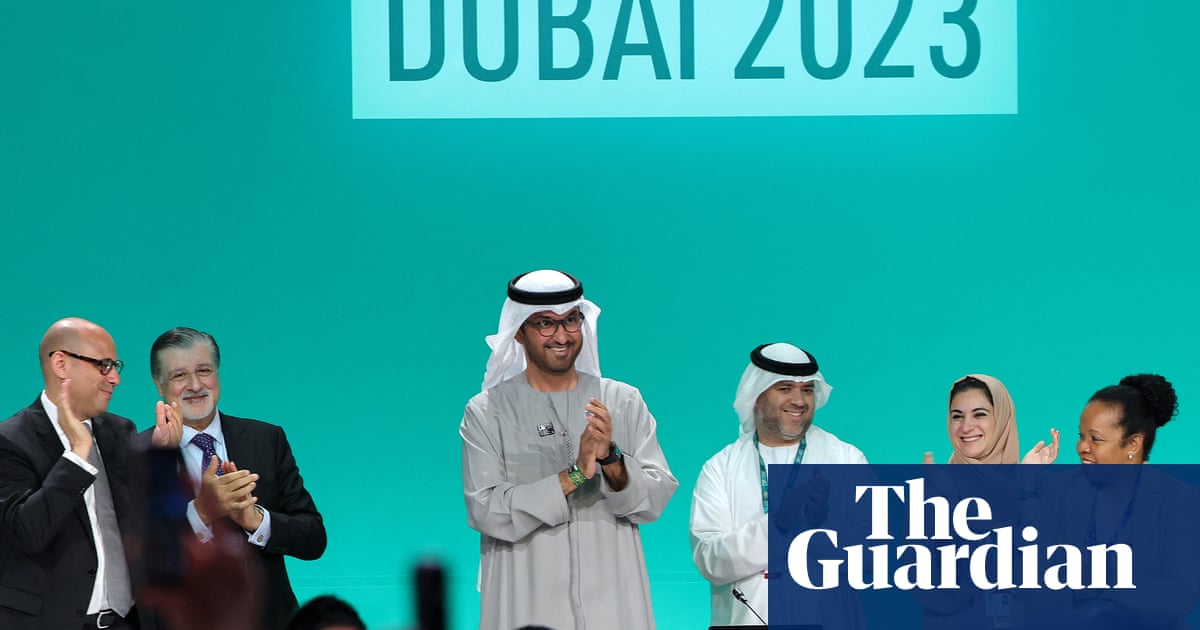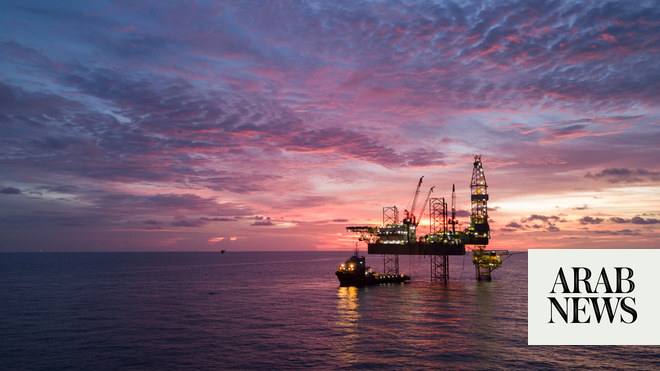
The credibility of the Cop28 agreement to “transition away” from fossil fuels rides on the world’s biggest historical polluters like the US, UK and Canada rethinking current plans to expand oil and gas production, according to the climate negotiator representing 135 developing countries.
In an exclusive interview with the Guardian, Pedro Pedroso, the outgoing president of the G77 plus China bloc of developing countries, warned that the landmark deal made at last year’s climate talks in Dubai risked failing.
“We achieved some important outcomes at Cop28 but the challenge now is how we translate the deal into meaningful action for the people,” Pedroso said.
“As we speak, unless we lie to ourselves, none of the major developed countries, who are the most important historical emitters, have policies that are moving away from fossil fuels, on the contrary, they are expanding,” said Pedroso.
These countries must also deliver adequate finance for poorer nations to transition – and adapt to the climate crisis.
In Dubai, Sultan Al Jaber, Cop28 president and chief of the Emirates national oil company, was subject to widespread scrutiny – understandable given that the UAE is the world’s seventh biggest oil producer with the fifth largest gas reserves.
Yet the US was by far the biggest oil and gas producer in the world last year – setting a new record, during a year that was the hottest ever recorded. The US, UK, Canada, Australia and Norway account for 51% of the total planned oil and gas expansion by 2050, according to research by Oil Change International.
“It’s very easy to label some emerging economies, especially the Gulf states, as climate villains, but this is very unfair by countries with historic responsibilities – who keep trying to scapegoat and deviate the attention away from themselves. Just look at US fossil fuel plans and the UK’s new drilling licenses for the North Sea, and Canada which has never met any of its emission reduction goals, not once,” said Pedroso, a Cuban diplomat.
The G77 plus China group is the largest bloc operating in the UN climate talks. The diverse coalition includes the world’s most populous countries and major emerging economies such as India, China, Brazil and Indonesia; significant fossil fuel producers such as Saudi Arabia, Venezuela and Nigeria; and some of the world’s most climate vulnerable nations such as Bangladesh, Vanuatu and Yemen.
Most countries belong to multiple blocs, which may have competing priorities. But developing countries have long been united in demanding that developed countries honor their legally binding obligations under the Paris agreement – and deliver on the means of implementation.
In other words when it comes to transitioning away from fossil fuels, developed countries must go first, start immediately, stop expansion plans, and provide fair financial assistance so the rest of the world can work towards the same ends. The technical term for this is common but differentiated responsibility (CBDR), and is set out within the Paris accords.
The 2015 agreement requires each country to create and implement a nationally determined contribution (NDC) that includes mitigation, adaptation and the means – finance, technology transfer and capacity building – by which this would be implemented. But this hasn’t happened. As it stands, developing countries face a shortfall of trillions of dollars, which is preventing them from implementing mitigation and adaptation measures as the climate crisis deepens.
The G77 presidency rotates annually, and Pedroso will next week hand over the baton to Uganda – where the government is working with neighboring Tanzania and the French conglomerate TotalEnergies to construct one of the world’s largest fossil fuel projects, the 900-mile east Africa crude oil pipeline.
“How can you tell countries like Uganda, Chad and Somalia, which have recently discovered oil, that they cannot touch this resource and must increase their NDC ambitions – without providing any reasonable economic alternatives for poverty eradication and development. We cannot address climate change in a vacuum.
“Climate change is a global phenomenon, and yes we all have to contribute to keep global temperature at 1.5C, but the scale to which we are responsible must be taken into account and reflected through the means of implementation … But there has been a systematic attempt to water down and take away from the CBDR and instead focus on ‘we’ve all got to do our part.”
In the end, the UN climate talks are all – or at least mostly – about the money, and political power.
Establishing the loss and damage fund at Cop28 was genuinely historic, and some countries responded with immediate pledges including $100m from Germany, the UAE and Italy, and $17.5m from the US – though only if Congress approves it.
“This was a very good political signal but everyone knows what was pledged was totally insufficient to meet the loss and damage needs of climate vulnerable developing countries. It remains to be seen how credible those pledges and how they translate into real financing for the fund,” said Pedroso.
In Dubai, countries also agreed to Azerbaijan hosting Cop29 this November, and Brazil as Cop30 host in 2025 – both are major oil and gas producers.
The next two years will be critical, as countries must establish a new climate finance goal reflecting the scale and urgency of the climate challenge at Cop29, and then go to the Amazon armed with new NDCs that cover all greenhouse gasses and are fully aligned with keeping the global temperature rise to 1.5C above pre-industrial levels.
“The fact that Azerbaijan, Brazil and the UAE – where oil and gas is very important – are willing to host Cop, shows a commitment and willingness by those countries to do something multilaterally, at least they are not running away.
“In terms of moving forward, 2024 and 2025 will be crucial years for implementation and that means the delivery of finance – which has not happened until now … most countries have legally binding commitments to act against climate change, and the only thing lacking is the means.”
As Pedroso prepares to return to the foreign ministry in Havana, he joined a growing chorus of voices calling on the UNFCCC to investigate the climate impact of Israel’s war in Gaza.
Last week, the Guardian revealed that reconstructing the 100,000 or so buildings destroyed by Israeli bombardment in the first 60 days of conflict could generate at least 30m tonnes of planet greenhouse gases. Reporting military emissions, which account for an estimated 5.5% of annual global CO2 emissions, is currently voluntary.
“There is a responsibility by the UNFCCC to do research into the implications of atrocities and war against the Palestinian people from an environmental and climate perspective. The impact is not only on emissions, but the whole of the ecosystem particularly for food production and water resources as we know that already the Palestinian people in Gaza are starving. Military emissions are extremely important and cannot be separated – this dimension needs to be tackled because this war of Israel against Palestinian was totally avoidable.”





